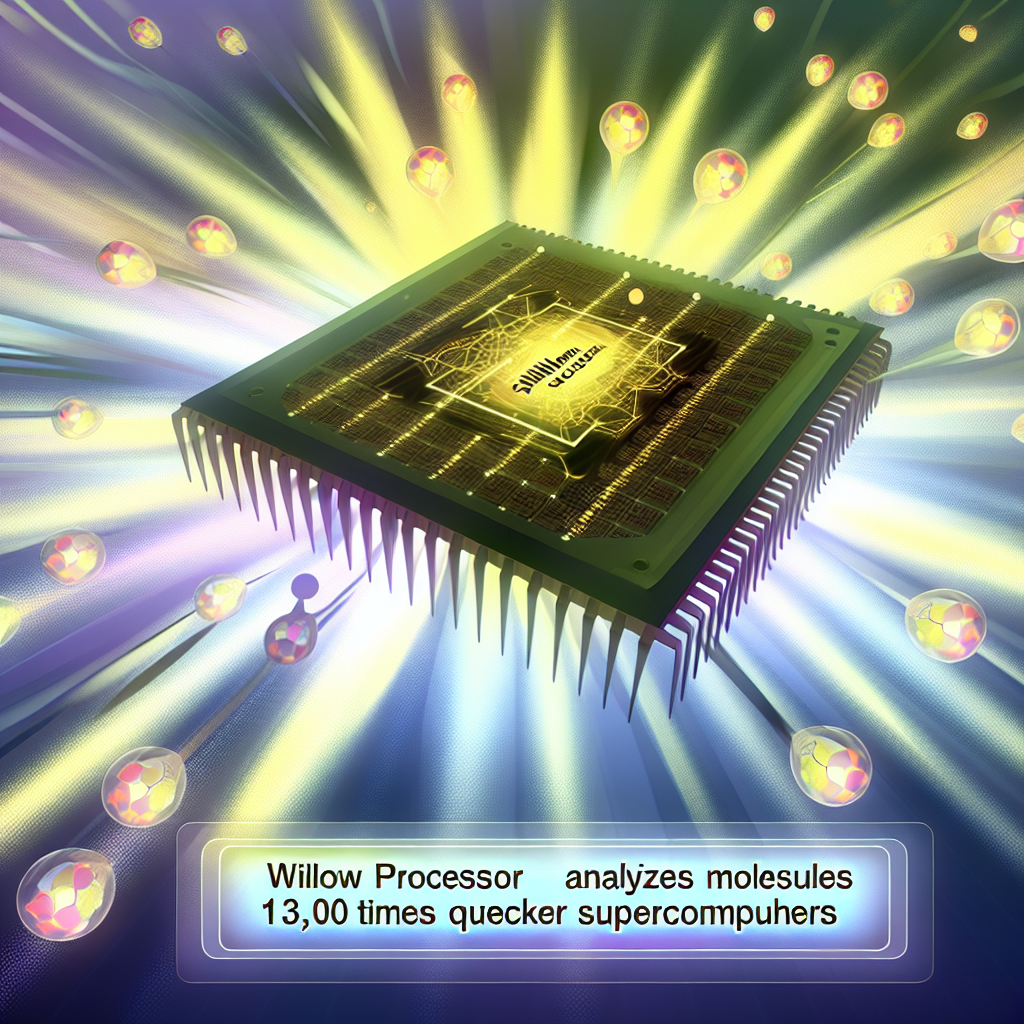Google researchers have reported mapping the structure of a molecule 13,000 times faster than today’s most advanced “supercomputers,” marking a significant milestone in achieving verifiable quantum advantage.
The study utilized Google’s Willow Quantum processor and a method known as “quantum echoes,” which employs targeted waves to capture detailed images of an object, as per Google.
This approach focuses on a single qubit—the fundamental unit of information storage in quantum computing—with a precise signal that triggers a response. The process is then reversed, enabling researchers to measure the “echo” or signal that reflects back, according to Google.
The experiment conducted by Google is verifiable, meaning identical results can be achieved by running the experiment on any quantum computer system fulfilling the same technical criteria as the one employed by the researchers.
A sufficiently powerful quantum computer may be capable of breaking the encryption methods that safeguard cryptocurrencies, as well as securing sensitive data in banking, medical, and military domains. Encryption is crucial for facilitating digital assets and peer-to-peer financing.
Related: What if quantum computers already broke Bitcoin?
Quantum computing and the existential threat to crypto
Experts believe quantum computers could potentially make elliptic curve digital signature algorithms (ECDSA), the cryptography behind public Bitcoin (BTC) addresses and their corresponding private keys, outdated as early as 2030.
“This represents the most significant threat to Bitcoin since its inception following the global financial crisis,” stated David Carvalho, founder and chief scientist at the Naoris decentralized cybersecurity protocol.
Bitcoin and other decentralized technologies face a collective action issue, where communities tend to debate theoretical solutions rather than quickly implementing known alternatives, Carvalho noted.
According to Mental Outlaw, a pseudonymous YouTuber focused on technology, current quantum computers do not possess enough power to breach encryption standards yet.
Modern encryption key lengths vary from 2,048 to 4,096 bits, while existing quantum computers can only crack keys approximately 22 bits in size or smaller, as stated by Mental Outlaw said.
Nevertheless, investors and companies are proactively advocating for the adoption of post-quantum cryptography standards to stay ahead of potential threats from powerful quantum computers.
The United States Securities and Exchange Commission (SEC) received a submission in September outlining a plan for quantum-resistant encryption standards by 2035.
Magazine: Bitcoin vs. the quantum computer threat: Timeline and solutions (2025–2035)

